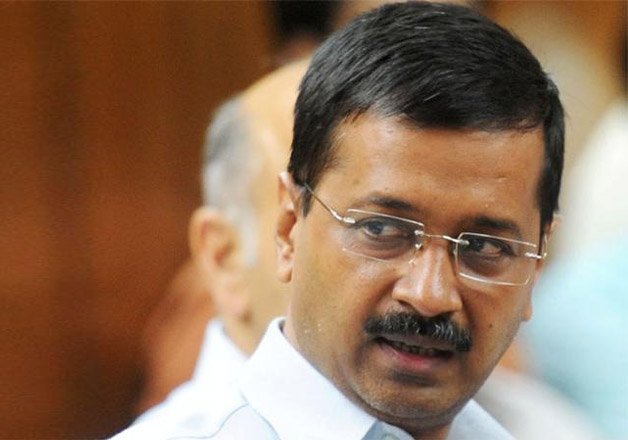Of late, Indian politics has been subject to an abnormal trend. Abnormal because something the country has been accustomed to since 2011, shoot-and-scoot politics and constant hypocritical whining, is making its absence felt. The politicking over the presidential elections, the historic GST legislation coming into effect, the contorted propagation of the lynchistan narrative, the communal riots in Bengal and just about every other political issue raging in the country today has been met with a stark silence from the otherwise excitable Aam Aadmi Party.
Don’t get me wrong, we’re not complaining. Nobody is. In fact, given their political insignificance and the fact that most people stopped taking them seriously long ago, barely anyone noticed. It had dawned on people long ago that the party held sway only over one union territory in the entire country, and that they wielded disproportionate influence over national discourse solely because they were the apple of the mainstream media’s eye. Be that as it may, the silence of both the party and its controversial leader is supremely uncharacteristic, and deserves analysis.
In 2015, the Aam Aadmi Party stormed to power in the union territory of Delhi, winning 67 of the 70 seats. This happened barely a year after the pan-Indian advent of the BJP, wherein they had secured every Lok Sabha seat on offer in Delhi. The BJP was growing in popularity, making new inroads and gaining strength. AAP was the first party to successfully arrest this trend post 2014. At the time, the rest of the opposition was in shambles, still licking their wounds from their near complete rout. The AAP was perceived as the only ray of hope in an otherwise decadent opposition. Their house wasn’t in disarray, and they seemed to be growing in popularity among certain sections of society.
Two years later, they are no different from the rest of the opposition. In fact, they are probably worse off than their peers. Their leader Arvind Kejriwal, in his quest for power, has made more enemies than any other Indian politician. His cheap personal attacks on the prime minister were lost on nobody, and his allegation against the finance minister attracted a lawsuit. Hardly anyone from the original India Against Corruption movement, the parent of the Aam Aadmi Party, associates themselves with Kejriwal anymore. Senior lawyer Prashant Bhushan, election analyst Yogendra Yadav and several other members who formed the core group of the party were first sidelined, and later shown the door by Kejriwal. Electorally, the party is in the dumps. The BJP recorded a huge win in Rajouri Garden’s by-election in Delhi, and the AAP’s candidate lost his deposit on a seat that the party previously held. If this wasn’t testament of the government’s unpopularity, the BJP swept the city’s municipal elections. The party failed miserably in the other states wherein they sought to win elections, despite being slated to win big in Punjab. Many of the MLAs in Delhi have rebelled against the leadership, and the threat of disqualification for holding an office of profit looms large over 21 other MLAs.
But these are the least of AAP’s worries. The party that rose to power in the name of anti-corruption has had several skeletons tumble out of the closet over the last two years. Ministers with fake degrees, ministers granting favors in exchange for sex, and generally corrupt ministers indulging in practices such as money laundering and inflated costs, have become the order of the day. Crores of rupees of taxpayers’ money has been spent over teas and samosas, advertisements around the country and even fighting a personal defamation case against the chief minister. The government has failed to achieve much in the last two years, and it seems as if the constant attacks against a highly popular prime minister have backfired.
There are several possible reasons which might have made Kejriwal and his party go completely mum.
The first of course is purely political. The anti-corruption platform that the party rose on didn’t stick for long when scams began to emerge, and what we witnessed was a conscious shift to an anti-Modi platform. The BJP’s electoral successes and the AAP’s electoral failures point at the fact that AAP’s rhetoric is politically unsound, and requires an immediate revamp. Perhaps they have decided to arrest their fall by changing tact, and are in the process of retrospection.
Another reason is the scams. The investigations of many of the scams are under the supervision of central government agencies. Perhaps they seek to avoid their implication at any cost, and hope that their silence will buy them peace with the center. This might not work, because the center has nothing to lose going after political lightweights, especially if there is merit to the allegations. Finance minister Arun Jaitley’s defamation suit is perhaps another lesson the party has learned. Jaitley is known to have close personal relations with politicians from across the spectrum, and the fact that Kejriwal managed to irk a well-established insider like him speaks volumes about how AAP’s strategy has gone wrong. Perhaps, forced to abandon the shoot-and-scoot brand of politics it mastered, it has nothing to say anymore.
After a terrible showing in the Punjab elections, and the disastrous reputation the Delhi government carries, perhaps the party’s coffers have dried up. For instance, before the Punjab elections, when the party was brimming with hope, several elements including those espousing for Khalistan made sure the party’s coffers were full. But now, perhaps people perceive it as a failed party, and make the calculated choice not to invest in them. Financial compulsions might be another reason they have chosen to change tact.
It remains to be seen how long the party and its controversial leader remain silent. Perhaps they are doing themselves a favor. To quote Abraham Lincoln, “It is better to keep quiet and to be thought a fool, than to speak out and remove all doubt.”
